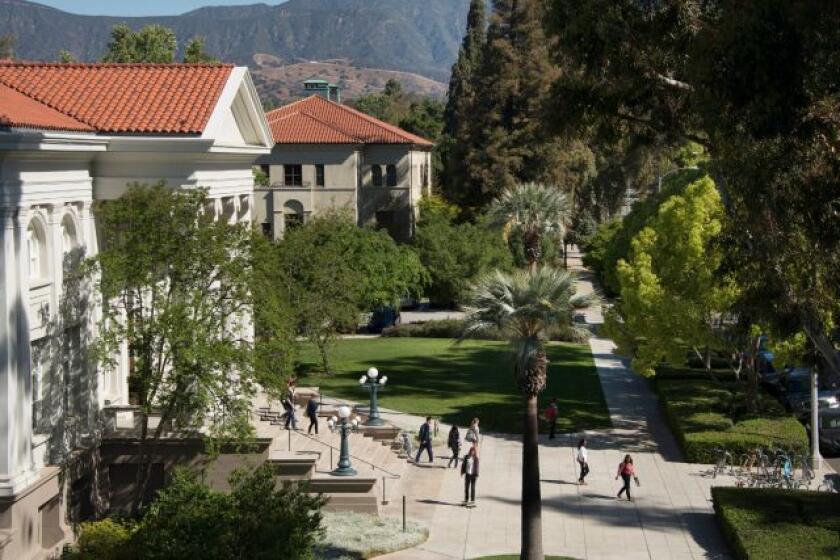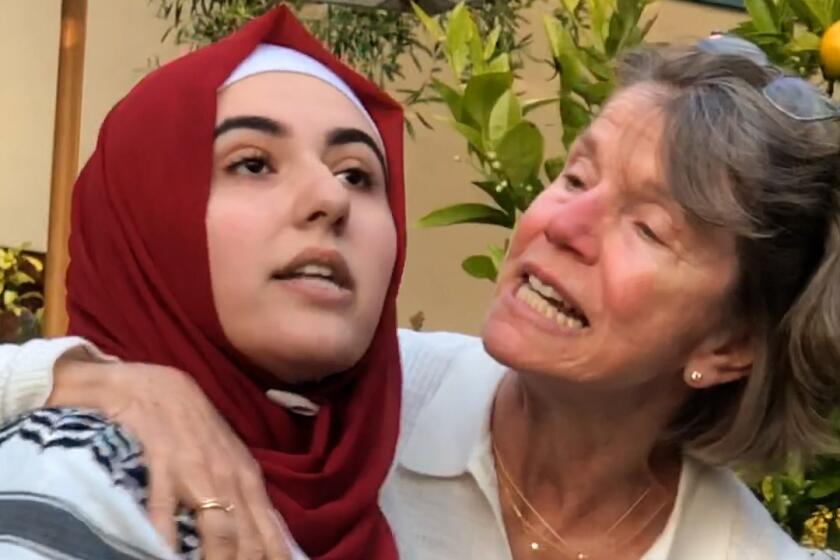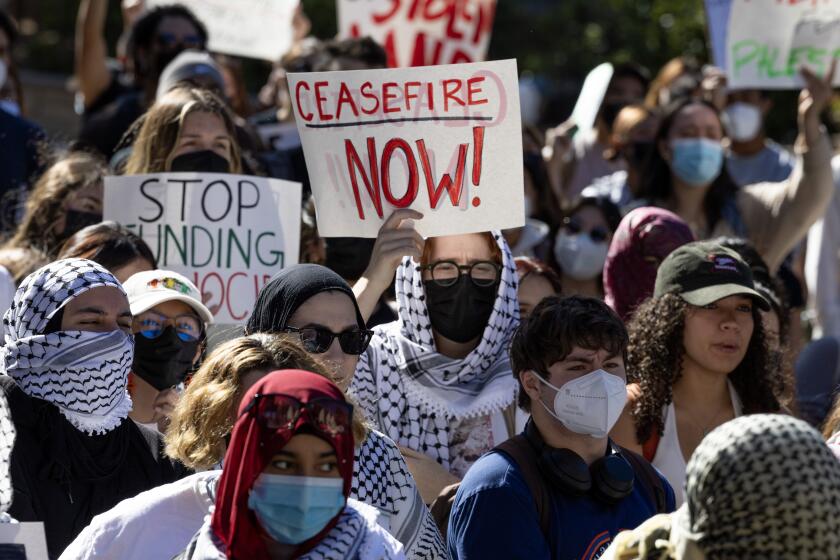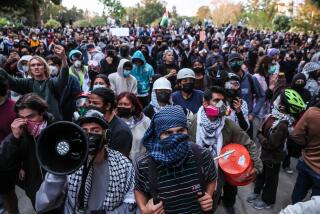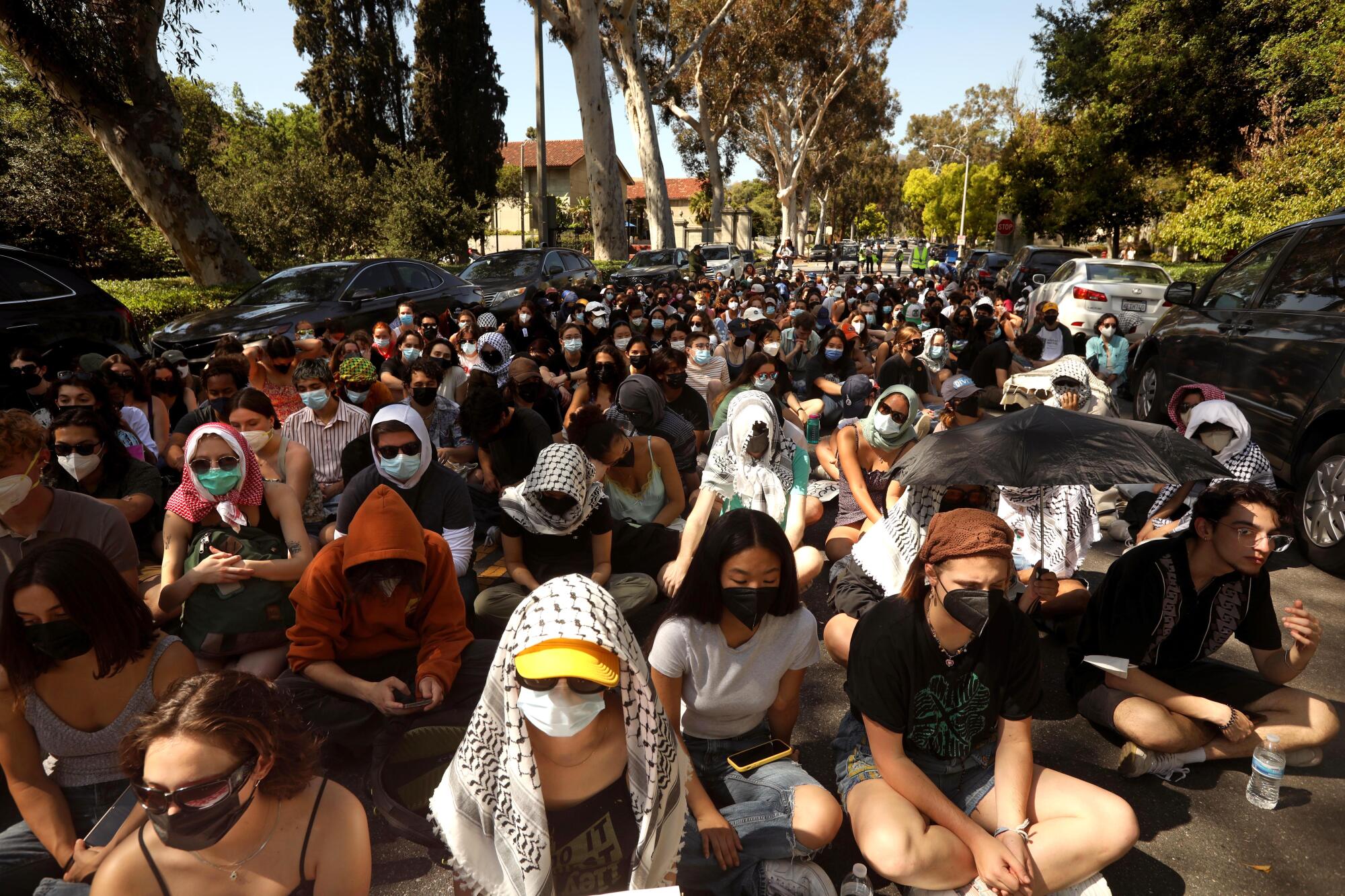
Hundreds of pro-Palestinian students doubled down on protests at Pomona College Thursday as the elite liberal arts campus is roiled by an intensifying Israel divestment campaign that even harsh disciplinary action against protesters has not deterred.
The demonstrations come less than one week after the campus was rocked when riot-gear-wearing local police arrested 19 people who had occupied the college president’s office.
“It is the worst on campus that it has been in a while,” said Ken Wolf, a history professor who has taught at Pomona for nearly four decades and seen activism from rallies against South African apartheid in the 1980s to racial justice demonstrations of recent years.
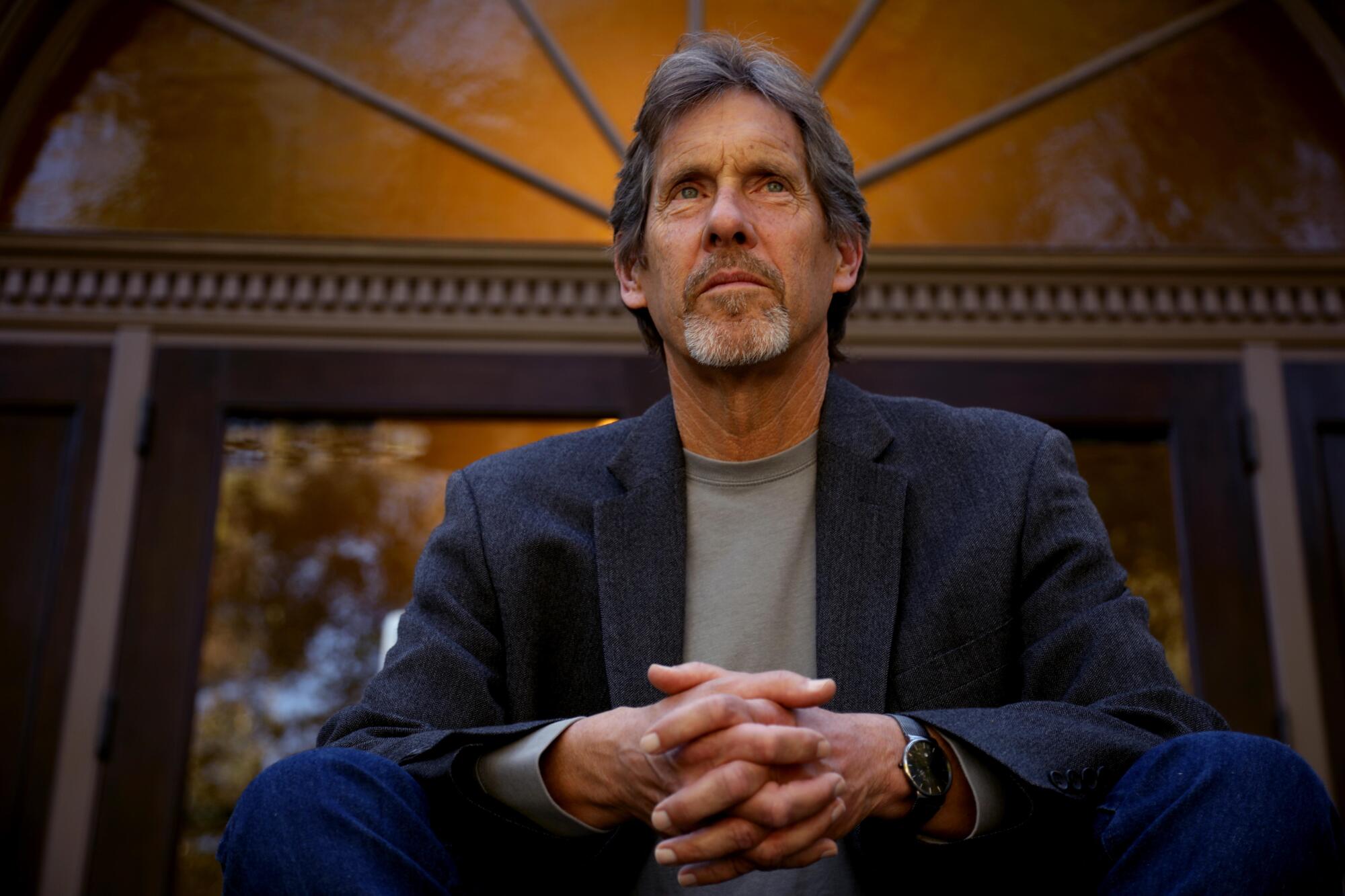
“There is a new generation of students who are protesting more aggressively and anonymously — masked and fully covered up — for their beliefs and there is an administration trying to deal with how to respond that many feel has gone overboard,” said Wolf, who is the chair of faculty.
Protesters Thursday gathered outside the Honnold/Mudd Library on campus of the Claremont Colleges, many wearing face masks, sunglasses and keffiyahs or other head-coverings to disguise their identities, some banging on pots and pans while others held signs that read “stop funding genocide,” and “stop the repression of pro-Palestinian voices.”
One by one, students who were arrested last week addressed the crowd and emphasized their desire for divestment.
The protest started over the college’s dismantling of a piece of student-erected pro-Palestinian protest art on campus, which had been standing since March 28.
“I’m supposed to be completing a thesis right now, but I can’t focus on anything but rage since Friday,” one said.
For months, pro-Palestinian activists have called on administrators to divest college endowment funds from corporations tied to Israel’s war in the Gaza Strip and the occupation of the West Bank. The Thursday demonstration was one of several events this week across Claremont Colleges — a consortium of five undergraduate and two graduate colleges where Pomona is the oldest.
At Pitzer College on Thursday, rallygoers called for a boycott of academic programs with Israel, including institutional partnerships. Recently, the college ended an exchange program with the University of Haifa, a request pro-Palestinian activists have made for several years. Pitzer administrators said low enrollment and other factors — not protests — prompted officials to remove the exchange from a “pre-approved” study abroad list.
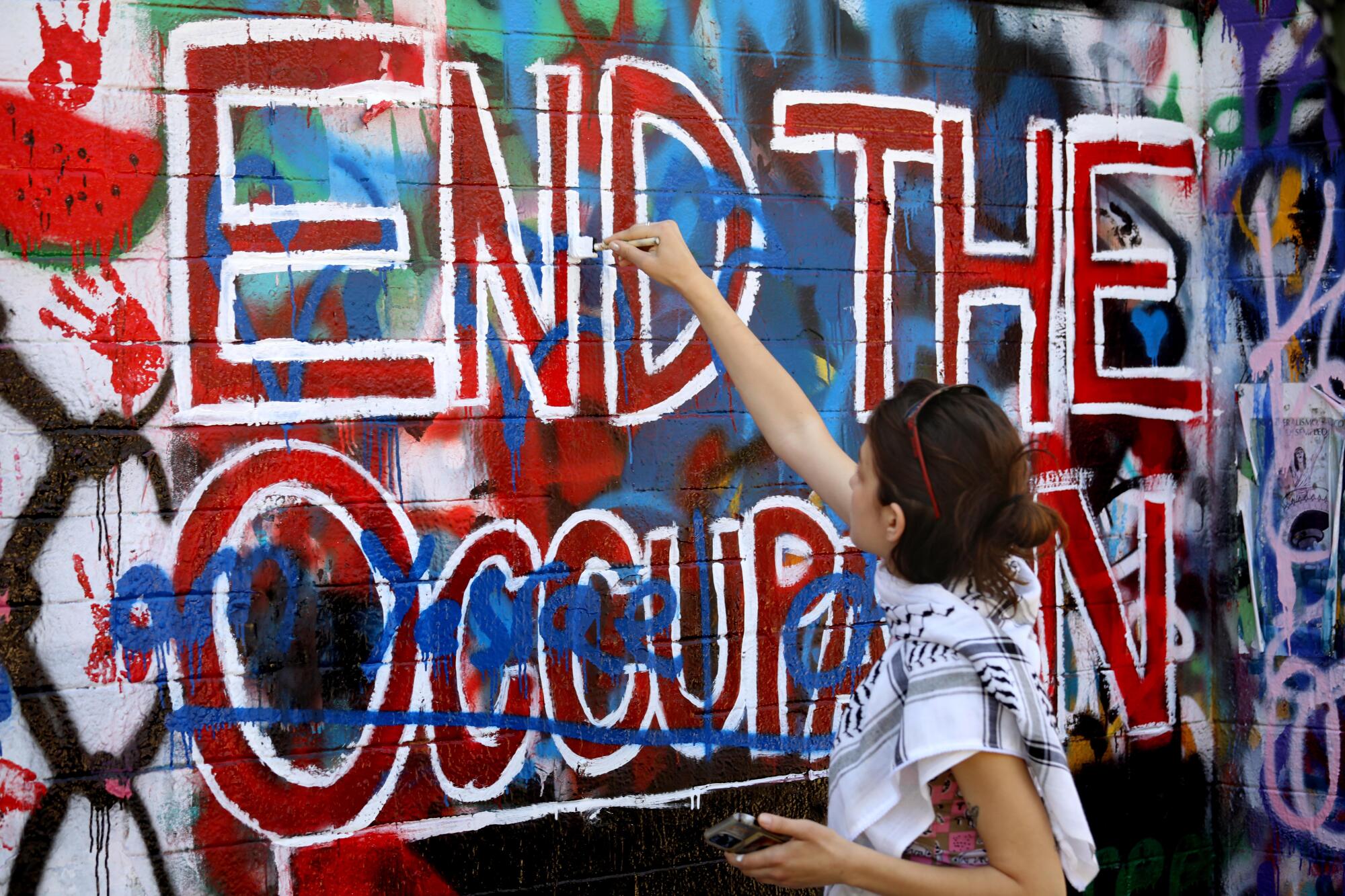
The Pitzer College Council, which includes students, faculty and staff, voted 48 to 19 on Thursday in favor of an academic boycott of Israel. Later, Pitzer College President Strom C. Thacker released a letter to the campus saying he would veto the measure because “I do not support an academic boycott of any country.”
The campus climate has become most tense at Pomona, where opposition has grown toward President G. Gabrielle Starr as she struggles to balance policies that support protest and free speech against campus safety concerns and increasingly aggressive protest tactics. The demonstrations have escalated since the Oct. 7 attack on Israel by Hamas, which killed about 1,200 people and took hundreds hostage. Israel’s retaliatory war has killed more than 33,000 Palestinians and left 2 million in near-famine conditions.
The tensions at Pomona, with just under 1,800 undergraduates and a 7% admittance rate, is the latest in a series of incidents at high-profile colleges and universities in the U.S. Administrators have recently clamped down on demonstrators at Columbia, Vanderbilt and Cornell universities, saying pro-Palestinian student activists have violated student policies over trespassing and other matters.
The ongoing protests have elevated fears among some Jewish students who say the college has become an unwelcome place.
“Are student activists exporting the Israeli-Palestinian conflict to a small town in California? How will that help bring about just peace in a land thousands of miles away?” said Bethany Slater, the director of the local Hillel, who said she has fielded calls and emails from distraught Jewish students.
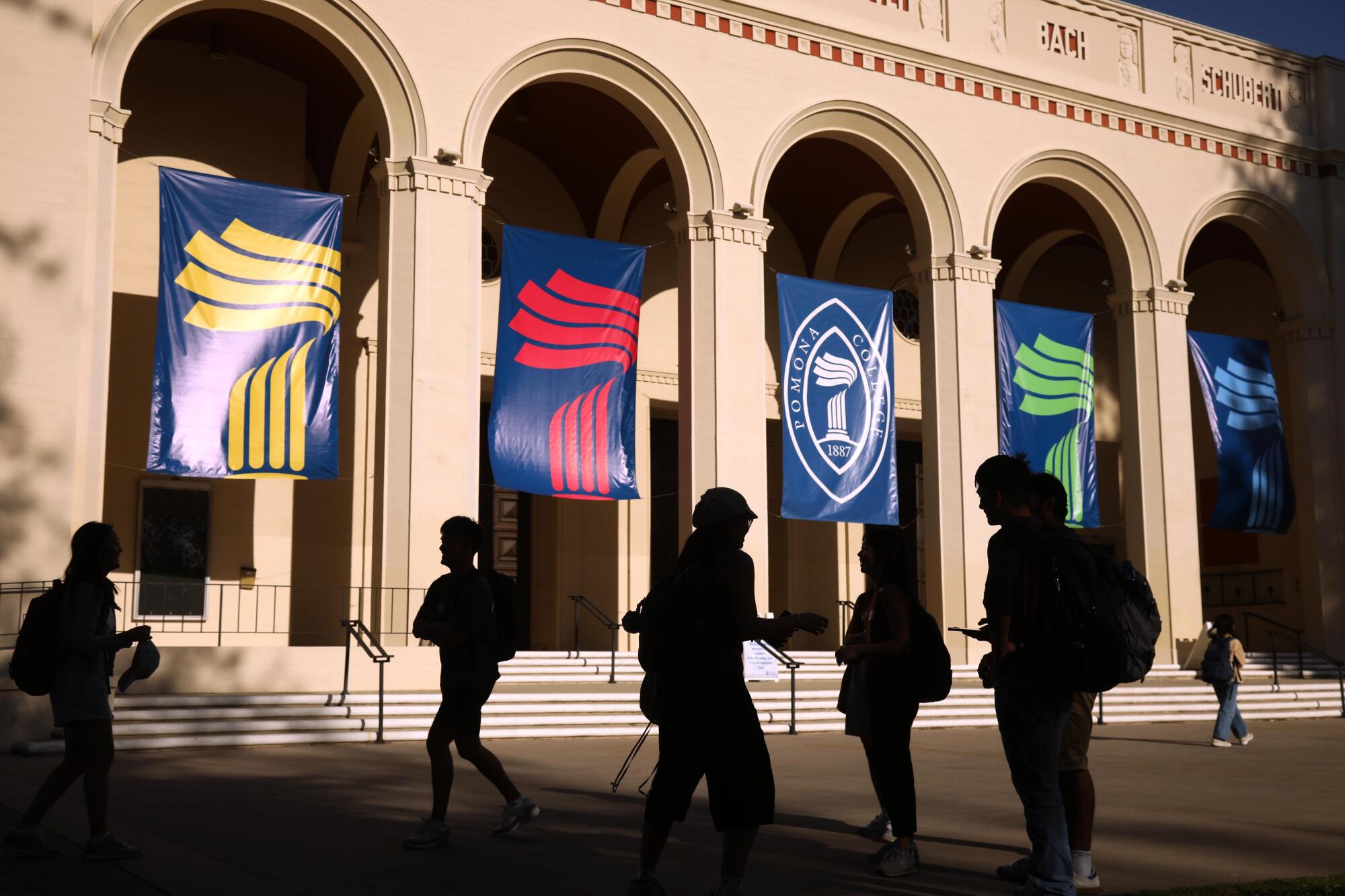
“It’s not a safe space for Jewish and definitely not Israeli students, said Ayelet Kleinerman, a senior at Pomona who is from Tel Aviv and studies neuroscience. “I am all for freedom of speech. Everyone should say what they want, but I don’t feel the college is upholding its policies and rules when it comes to students and protest.”
UC Berkeley professor Erwin Chemerinsky and his wife, professor Catherine Fisk, got into a heated argument with a pro-Palestinian protester during a dinner at their home.
Last week’s protest appeared to be the breaking point for Starr.
University officials said that when students from pro-Palestinian groups occupied Starr’s office and refused to give their names or college affiliation, she authorized a call to police, who arrived in riot gear and arrested 19.
All of those students now face misdemeanor trespassing charges, and the seven who were from Pomona have been suspended pending an internal judicial review. Some have called on Starr to resign. They are also staging die-ins and walkouts.
After two emergency meetings, two-thirds of the voting members of Pomona College’s faculty body supported a motion on Thursday demanding that Starr drop student suspensions and criminal charges. Many also spoke forcefully against calling riot police to the college ever again.
This week, 49 student admissions staff workers — the majority of the student staff — also sent a letter to Starr’s office threatening to boycott giving admissions tours. Some students indicated they would continue to work because of financial need but would make clear to prospective undergraduates that “this institution suppresses student voices and is willing to deploy militarized police in riot gear on unarmed, peaceful student protesters.”
Starr has said pro-Palestinian student activists have interrupted and harassed tour groups. On the Pomona website, the university has defended her decision to call in police last week, citing “escalating acts of harassment and intimidation carried out against visitors and students by masked, unidentified individuals who refuse to identify themselves.”
In a statement last week announcing her plan to arrest students who did not disperse or identify themselves during the sit-in, Starr said protesters have been “actively destructive of the values that underpin our community.”
Starr, contacted through Pomona’s media relations office, declined an interview request for this article.
A representative from an independent campus watchdog group, Foundation for Individual Rights and Expression, suggested Starr’s actions are out of the ordinary.
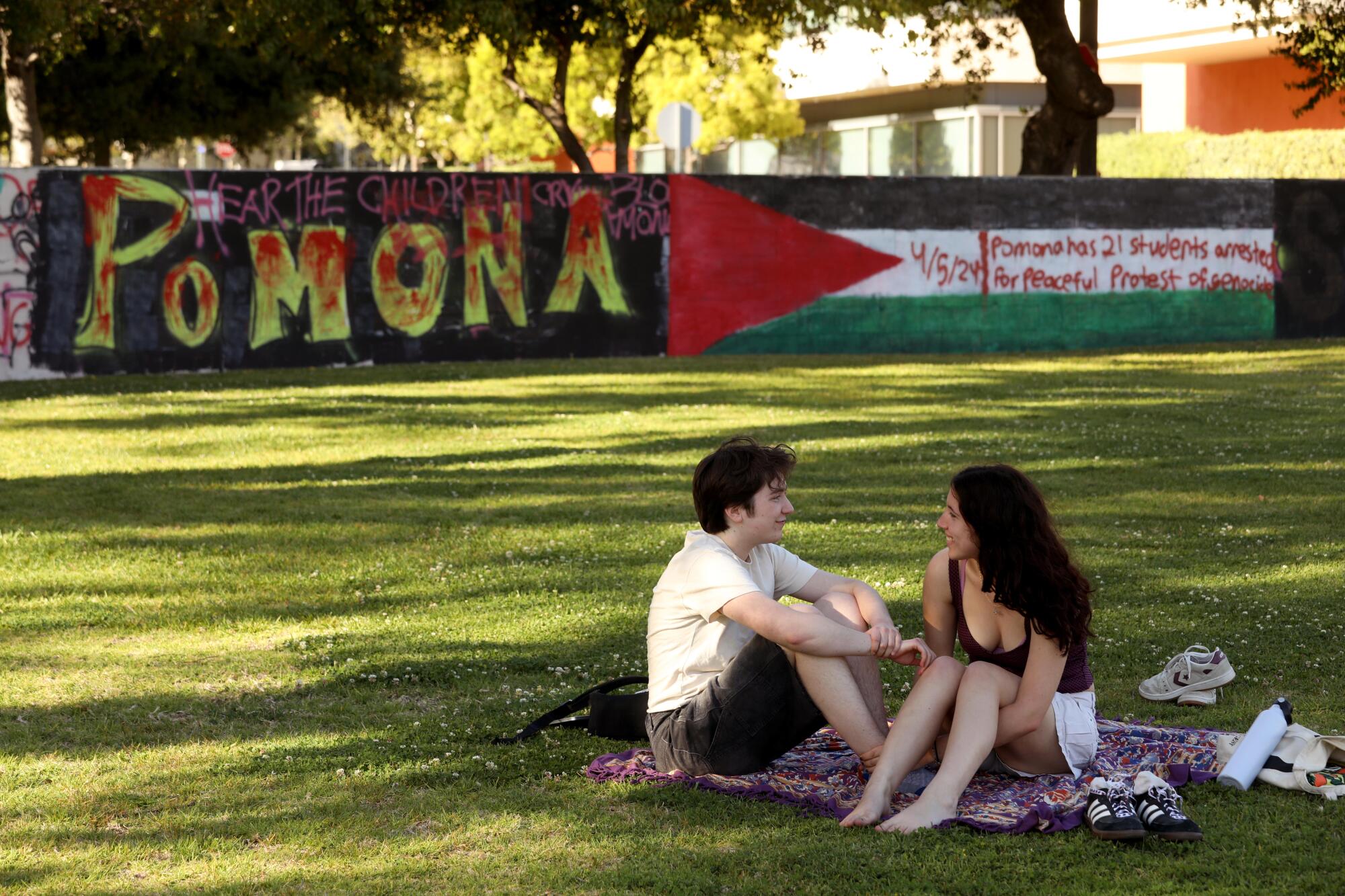
“Students at private campuses tend to have wide free speech rights,” said Alex Morey, the foundation’s director of campus rights advocacy. “That doesn’t mean students can do anything, and there are guidelines — typically around amplification of sounds, safety, blocking entrances.”
“But usually there is not such a quick decision to call police or issue suspensions,” she said.
The Israel-Hamas war is roiling the University of California amid controversy over faculty political statements and the harassment of students.
Students have targeted Pomona because it has the largest endowment of the Claremont Colleges — more than $3 billion — and is seen a trailblazer in the group of colleges. In February, the student body conducted a nonbinding vote on whether Pomona should disclose its investments and divest from Israel. Nearly 60% of students voted, and a significant majority of those who participated supported the proposals.
“There are many ways to help heal a broken world. This is not one of them,” Starr, who opposed the proposal, said at the time. She said the decision unfairly singled out Israel.
“We have tried every way we can since last semester to get Pomona to do the right thing, to stop supporting genocide,” said Kae, a Pomona senior who was a part of the Pomona Divest from Apartheid group arrested last week at Alexander Hall, which houses the president’s office. “Instead, they have militarized our campus with police against students who are mostly brown and Black,” said Kae, who is Black and Jewish. Kae did not want to use their last name because they were fearful for their safety.
It is unclear if or to what degree Pomona has investments in corporations involved in Israel’s occupation of Palestinian territories or the war in Gaza.
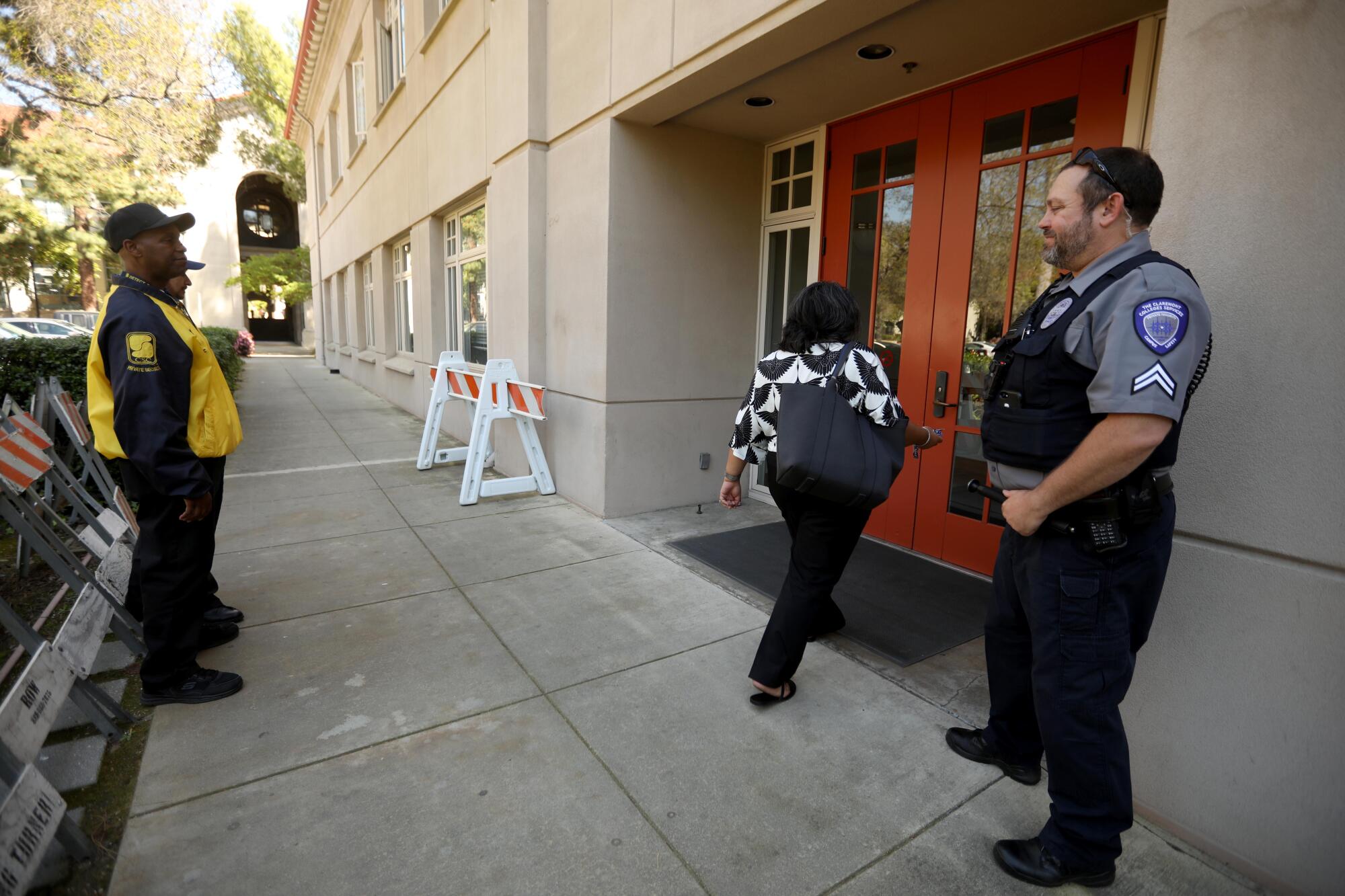
In an interview, Jeff Roth, Pomona’s vice president, chief operating officer and treasurer, declined to reveal whether there are such investments, citing legal agreements with fund managers that prevent him from such disclosures. But, speaking broadly, Roth said that large endowments would likely have some investment in companies that the Boycott, Divestment and Sanctions, or BDS, movement against Israel has targeted.
“If we invest some our our endowment in an index fund of the S&P 500, we have a small piece of largest 500 companies,” he said, acknowledging that some of those companies have been targeted by the BDS campaign for selling weapons and other military technology and equipment to Israel.
More to Read
Sign up for Essential California
The most important California stories and recommendations in your inbox every morning.
You may occasionally receive promotional content from the Los Angeles Times.


